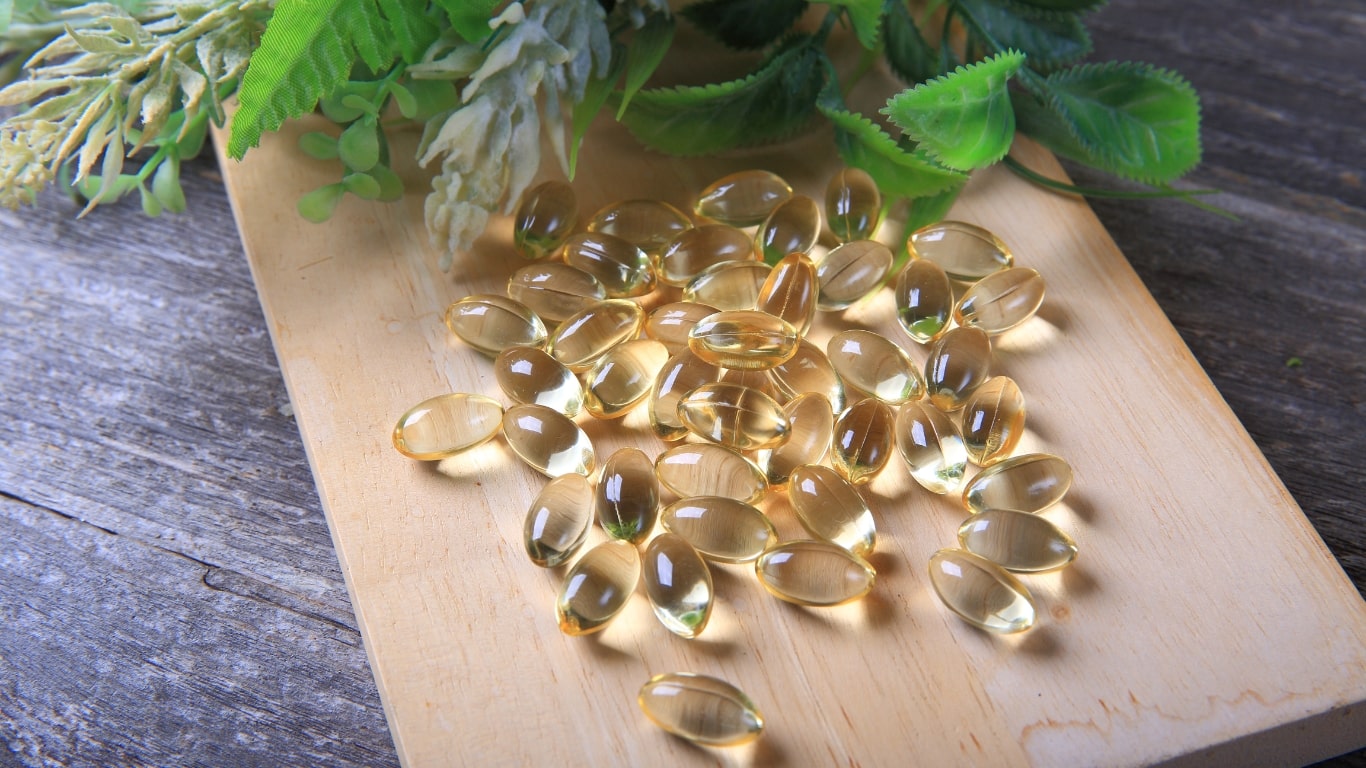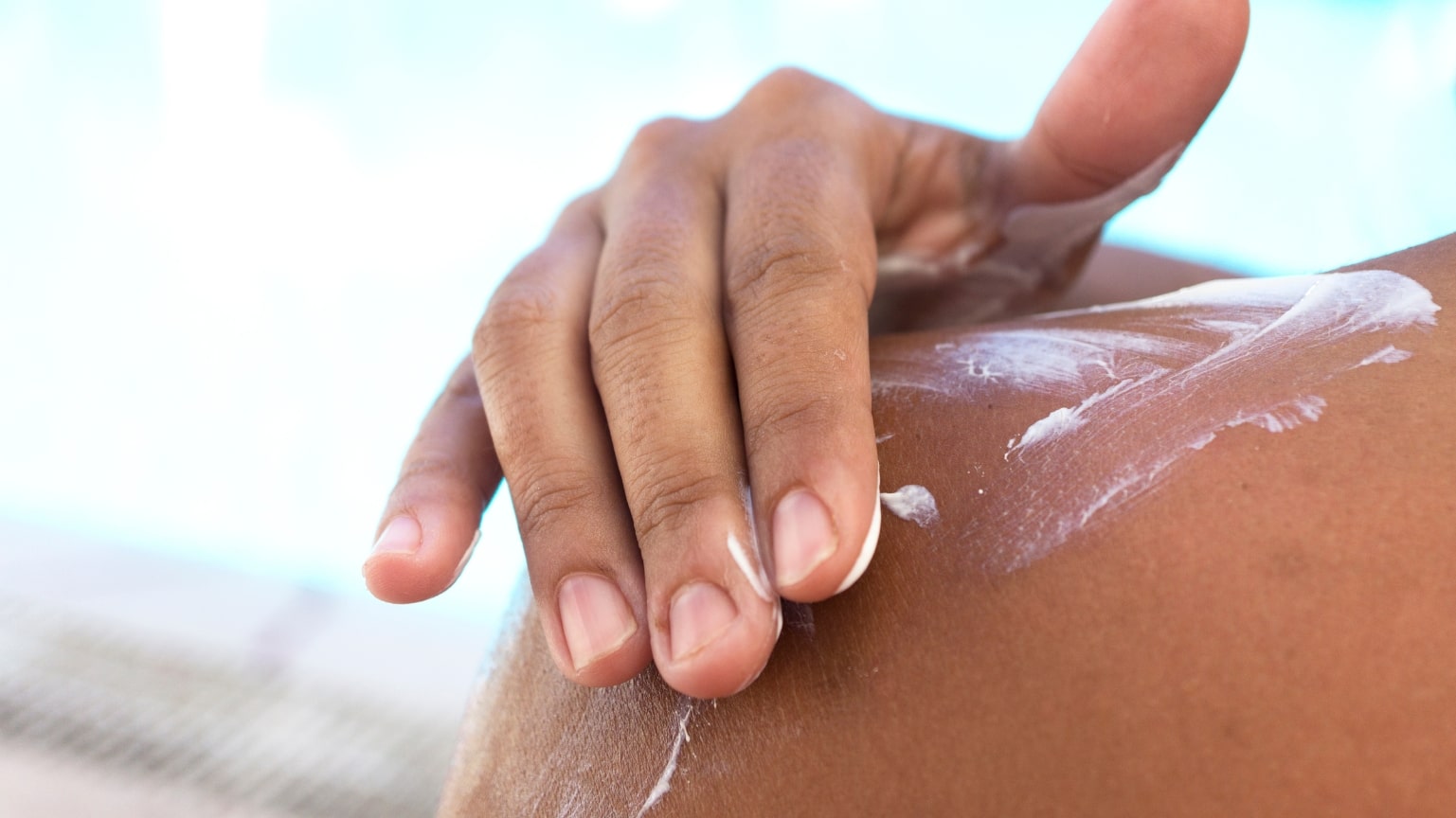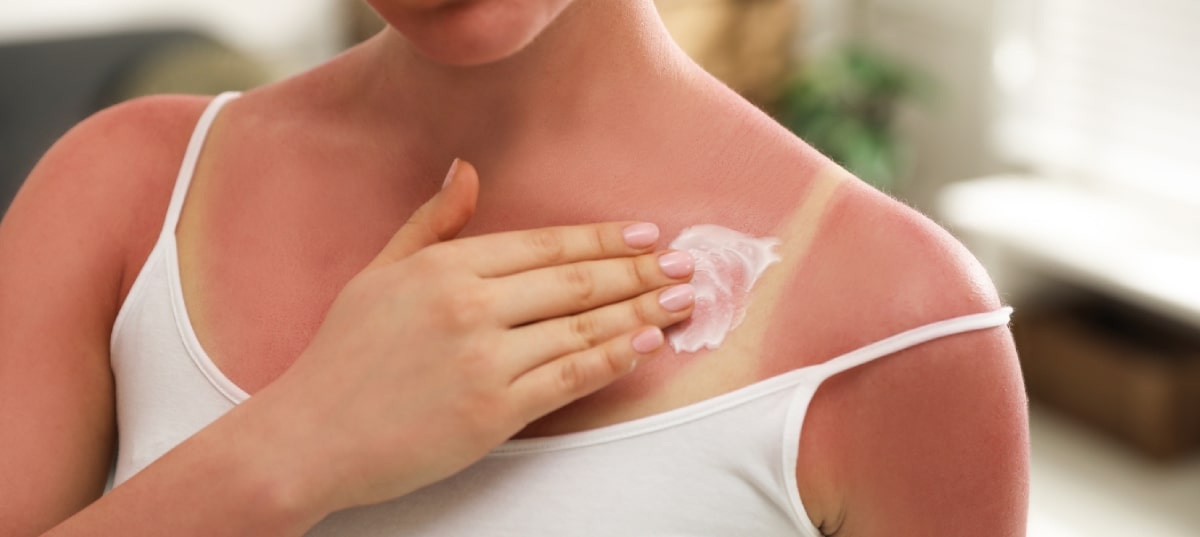Vitamin E can be an effective solution if you're a cyclist dealing with sunburn. It helps soothe irritation and accelerates skin recovery, while its antioxidant properties protect against further damage. Including Vitamin E in your daily routine can be a natural way to manage and heal sunburn more effectively.
Yes, Vitamin E can be beneficial for sunburn relief for cyclists. Antioxidant properties are one of vitamin E's most essential benefits, which can help reduce inflammation and promote the healing of damaged skin. To use Vitamin E for sunburn, apply Vitamin E oil or break open a Vitamin E capsule and gently apply it to the affected area. This can help relieve redness and discomfort.
In this blog post, we'll explore how Vitamin E can help keep your skin as healthy as your spirit on the road.
Is Vitamin E Good For Sunburn For Cyclists: Understanding Vitamin E

The benefits of vitamin E are numerous. For cyclists who spend most of their time under the sun, understanding its role is crucial for skin health and protection.
Overview as a Fat-Soluble Vitamin and Antioxidant
Vitamin E is a fat-soluble nutrient that dissolves in fat and is stored in your body for later use. This makes it a long-lasting ally against sun damage.
- Fat-Soluble: Stays in the body longer, providing ongoing protection.
- Antioxidant Properties: Fights off harmful molecules that can damage skin cells.
Importance in Skin Health and Protection Against Free Radicals
Maintaining healthy skin requires vitamin E. Its antioxidant power helps shield your skin from harmful elements that can lead to sunburn and other damage.
- Skin Health: Promotes healing and reduces inflammation, keeping skin strong.
- Free Radical Defense: Protects skin cells from damage caused by sun exposure.
Various Types of Vitamin E: 9 Sources
Vitamin E is an essential nutrient for your skin's health and protection. Particularly useful for cyclists who spend a lot of time in the sun. Vitamin E can be consumed in a lot of ways. Here is some examples.
Sources of nutrition
Eating the right foods is the best way to get Vitamin E. Here are some foods that are high in this nutrient:
- Nuts: Almonds, hazelnuts, and peanuts are great snacks rich in Vitamin E.
- Seeds: Sunflower seeds and pumpkin seeds are not only tasty but also packed with Vitamin E.
- Leafy Greens:Swiss chard, spinach, and kale are green veggies that are good for your health.
- Vegetable Oils:Sunflower, safflower, and wheat germ oil are excellent sources of Vitamin E.
- Fruits:Avocados and mangoes are delicious and nutritious options.
Supplements
Sometimes, getting enough Vitamin E from food can be tricky. That's where supplements come in. Here’s a quick overview:
- Capsules: These are easy to take and come in different strengths.
- Softgels: Often used because they are easy to swallow.
- Liquid: Some people prefer liquid supplements for easier absorption.
- Multivitamins: These often include Vitamin E along with other vitamins.
Before taking supplements, it’s a good idea to talk to a doctor or a nutritionist to make sure you are taking the right amount.
How Vitamin E Works on the Skin
Vitamin E is well known for its benefits to the skin, especially in treating and soothing sunburns. For cyclists who are constantly in the sun, understanding how Vitamin E works can be crucial to maintaining healthy skin.
Mechanism of Action on Skin Cells
Vitamin E has a crucial role in protecting and healing the skin. Here's how it works:
- Cell Repair and Regeneration: Vitamin E promotes the repair of damaged skin cells, helping them to regenerate more effectively. This is especially beneficial after sun exposure, especially for sunburned skin.
- Barrier Protection: It strengthens the skin's natural barrier, reducing the risk of further damage and moisture loss, which can occur due to sunburn.
Role in Neutralizing Free Radicals and Preventing UV Damage
Vitamin E's key benefit is its ability to combat free radicals and prevent UV damage, which is particularly important for cyclists who are frequently exposed to the sun.
- Antioxidant Power: Vitamin E is a powerful antioxidant that neutralizes free radicals and other molecules that can cause significant damage to skin cells. By neutralizing these radicals, Vitamin E helps reduce the severity of sunburns.
- UV Protection: While Vitamin E does not replace sunscreen, it provides additional protection by minimizing the potential harm caused by ultraviolet rays. This helps in preventing long-term damage such as premature aging and even skin cancer.
Skin Repair and UV Protection

Cyclists often spend long hours outdoors, making them susceptible to sunburn and skin damage. Vitamin E contributes to skin repair and provides protection against harmful UV rays.
Vitamin E's Role in Repairing Damaged Skin
Sun-damaged skin can be repaired with vitamin E.
Here's how it works:
- Antioxidant Properties: Vitamin E is an effective antioxidant that helps reduce free radicals, which can damage skin cells.
- Moisturization: It helps keep the skin hydrated, which is essential for healing.
- Reduces Inflammation: Vitamin E can soothe irritation and reduce redness associated with sunburn.
Protective Benefits Against Harmful UV Rays
Using Vitamin E can also help protect the skin from future sun damage. Its protective benefits include:
- UV Absorption: Vitamin E can absorb some UV light, reducing the amount that penetrates the skin.
- Barrier Protection: It helps strengthen the skin's barrier, making it more resistant to damage.
- Improved Skin Health: Regular use can enhance overall skin health, making it less prone to sunburn and other issues.
Anti-Inflammatory Properties of Vitamin E
Vitamin E is not just a vital nutrient for well-being, but also a powerful ally for cyclists dealing with sunburn. Sunburned skin will benefit from its anti-inflammatory properties.
How Vitamin E Helps Soothe Sunburned Skin
Cyclists often spend long hours under the sun, making sunburn a common issue. Vitamin E soothes the skin.
- Moisturizes the Skin: Vitamin E is an effective moisturizer which helps to rehydrate sunburned skin.
- Promotes Healing: It aids in repairing damaged skin cells, speeding up the healing process.
Reduction of Inflammation and Redness
Getting a sunburn can cause the skin to become red and inflamed. Vitamin E is effective in reducing these uncomfortable symptoms.
- Calms the Skin: The anti-inflammatory properties of Vitamin E help calm irritated skin.
- Decreases Redness: By reducing inflammation, Vitamin E also helps lessen the redness associated with sunburn.
Accelerated Healing Process

For cyclists who spend hours under the sun, sunburn can be a common issue. Vitamin E has proven benefits in speeding up the healing process of sunburned skin. Let's look at how it works:
- Promotes Quicker Recovery: Vitamin E is an antioxidant, which means it helps repair and protect your skin cells. By fighting off free radicals, it speeds up the healing of sunburns, helping your skin recover faster.
- Prevents Further Skin Damage and Irritation: Applying Vitamin E can soothe irritated skin and create a barrier that protects against further harm. Reduces redness and swelling, and stops further sun damage to the skin.
Prevention of Scarring and Hyperpigmentation
Cyclists often face long hours under the sun, putting their skin at risk for sunburn. Sunburn can lead to scarring and uneven skin tone, which many want to avoid. One way to help prevent these issues is by using Vitamin E. Let's explore how it can protect your skin from long-term damage.
Long-term Benefits of Regular Vitamin E Use on Sunburned Skin
Vitamin E has healing properties for sunburned skin. Regular use can bring several advantages:
- Reduces Inflammation: Vitamin E helps soothe the skin and reduces redness and swelling.
- Speeds Up Healing: It promotes faster skin repair, meaning less time for sunburn to cause damage.
- Strengthens Skin Barrier: Regular use can make your skin more resilient to future sun exposure.
How It Helps Minimize Scarring and Uneven Skin Tone
Scarring and hyperpigmentation can be a concern after a sunburn. Vitamin E plays an important role in minimizing these effects:
- Prevents Scar Formation: It supports the skin's natural healing process to minimize scar tissue.
- Evens Out Skin Tone: Vitamin E can lighten dark spots and reduce the appearance of patchy skin.
- Moisturizes Deeply: Keeping the skin hydrated helps it maintain its elasticity and smoothness.
Topical Application of Vitamin E for Sunburned Cyclists
Cyclists often find themselves exposed to the sun for long periods, making sunburn a common issue. Using Vitamin E topically can help soothe and repair sun-damaged skin. Here’s how you can apply Vitamin E effectively.
Methods of Applying Vitamin E
When it comes to applying Vitamin E to your skin, there are several options to consider. This gives you flexibility based on what is most convenient or comfortable for you.
- Oils: Vitamin E oil is a popular choice. You can buy pure Vitamin E oil or use oils that contain Vitamin E as an ingredient. Simply apply a small amount to the affected area and gently rub it in.
- Creams: Many creams and lotions include Vitamin E. You can apply these as part of your regular skincare routine. Look for creams specifically designed for after-sun care for added benefits.
- Capsules: The oil inside vitamin E capsules can be applied directly to the skin. This method ensures you are using pure Vitamin E, which may be more effective for some people.
Recommended Dosage and Frequency
For best results, it's important to know how much and how often to use Vitamin E. Here are some guidelines to follow:
- Dosage: A pea-sized amount of oil or cream is typically sufficient for a small area of sunburn. Adjust the amount based on the size of the affected area.
- Frequency: Apply Vitamin E to the sunburned area once or twice daily until the skin heals. Consistent use is key to seeing improvement.
Dietary Intake for Skin Health

Cyclists often face prolonged exposure to the sun, which can lead to skin damage. Sunburn can be prevented and repaired by eating a diet rich in Vitamin E. Let's explore how a Vitamin E-rich diet can benefit your skin and some meal ideas to get you started.
Importance of a Vitamin E-Rich Diet for Overall Skin Health
The nutrient vitamin E promotes skin health from the inside out. Here's why it matters:
- Promotes Skin Healing: A diet high in Vitamin E helps your skin repair itself more effectively, which is crucial after sunburn.
- Enhances Skin Elasticity: Vitamin E improves the skin's elasticity, helping it to remain smooth and supple even after extensive sun exposure.
- Provides Antioxidant Protection: It works as an antioxidant, preventing free radical damage, which is often caused by the sun.
Suggested Meal Ideas and Recipes
Adding Vitamin E to your diet is easy with the right foods. Here are some meal ideas to help you boost your Vitamin E intake:
- Breakfast: Start your day with a spinach, avocado, and almond smoothie rich in Vitamin E, which can help nourish your skin for a youthful appearance.
- Lunch: A salad with sunflower seeds, spinach, and olive oil dressing is a delicious way to increase your Vitamin E intake.
- Dinner: Try a stir-fry with broccoli, shrimp, and olive oil. Not only are these foods tasty, but they are also packed with Vitamin E.
Possible Side Effects of Using Vitamin E for Sunburn
While Vitamin E can benefit sunburned skin, it's important to be aware of its potential side effects. Understanding these can help you use Vitamin E safely and effectively.
Common Allergic Reactions and Skin Irritation
When applying Vitamin E topically, some individuals may experience allergic reactions. It's important to recognize the signs to prevent further skin issues.
- Redness and Itching: These are typical symptoms of an allergic reaction. If you notice these, stop using the product immediately.
- Swelling and Blisters: More severe reactions may include swelling or blisters, indicating that the skin is not tolerating the product.
- Rash Formation: A rash may develop where Vitamin E was applied, showing sensitivity to the ingredient.
Precautions to Take When Applying Vitamin E
To minimize risks, consider these precautions before using Vitamin E on your skin.
- Patch Test First: Before using the product widely, apply a small amount to a patch of skin.
- Avoid Broken Skin: Do not use Vitamin E on open wounds or severely sunburned areas where the skin is broken.
- Consult a Professional: If unsure about using Vitamin E, especially if you have sensitive skin, consult a dermatologist for advice.
- Check Ingredients: Ensure the Vitamin E product does not contain other ingredients that might cause irritation or allergic reactions.
Interaction with Other Skincare Products
When caring for sunburned skin, cyclists must choose the right skincare products. Vitamin E, known for its soothing benefits, can work well with other skincare products if used correctly.
Safely Combining Vitamin E with Sunscreen
To protect your skin from sunburn, it's crucial to use sunscreen along with Vitamin E. Here are some tips:
- Layering is Key: Apply sunscreen first, followed by Vitamin E. This ensures maximum sun protection.
- Choose Broad-Spectrum Sunscreen: Broad-spectrum sunscreen protects against both UVA and UVB rays.
- Look for Lightweight Formulas:Opt for non-greasy sunscreens and Vitamin E products to avoid a heavy feel on your skin.
Mixing Vitamin E with Other Skincare Treatments
Vitamin E can complement various skincare treatments, but it's important to combine them wisely:
- Avoid Overlapping Active Ingredients:Mixing too many active ingredients can irritate your skin. Stick to Vitamin E with gentle products.
- Test Before Full Application: Always patch-test new combinations to check for adverse reactions.
- Consult a Skincare Expert: If unsure, ask a dermatologist about combining Vitamin E with other treatments.
Recommendations for a Holistic Skincare Routine
Creating a balanced skincare routine helps maintain healthy skin, even for cyclists who spend considerable time outdoors.
- Cleanse Gently: Avoid stripping your skin of its natural oils by using a mild cleanser.
- Moisturize Daily: Apply a Vitamin E-rich moisturizer to keep your skin hydrated.
- Exfoliate Weekly: Slough off dead skin cells to enhance the absorption of Vitamin E treatments.
When to Seek Medical Advice
In hot weather, cyclists are more likely to get sunburn. While minor sunburns can be treated at home, there are times when medical advice is necessary. Knowing when to seek help is crucial for your health and safety.
Signs of Severe Sunburn
Severe sunburns need special attention. Here are signs that you should see a doctor:
- Blisters: If your sunburn causes painful blisters, it is important to get medical advice.
- Swelling: Noticeable swelling in the affected area can be a concern.
- Fever or Chills: Experiencing a high temperature or shivering might indicate a severe reaction.
- Dizziness or Confusion: Feeling dizzy or confused can be a sign of sunstroke, which requires immediate care.
- Infection Signs: Look for red streaks or pus on the skin if you believe you have an infection.
Guidelines for Cyclists on Managing Sunburn Safely
Managing sunburn effectively can help you recover faster and prevent future damage. Here are some tips for cyclists:
- Stay Hydrated: Drink plenty of water to help your body heal and stay cool.
- Cool the Skin: Use a cold compress or take a cool bath to reduce heat and pain.
- Moisturize: Apply aloevera or a gentle moisturizer to soothe your skin.
- Avoid Tight Clothing: Wear loose, breathable clothing to prevent irritation.
- Rest: Give your body time to heal before heading back into the sun.
Conclusion
As we've explored, Vitamin E is more than just a vitamin; it’s a powerhouse for soothing and healing sunburned skin, especially for cyclists who spend countless hours exposed to the elements. As a result of its antioxidant properties and ability to stimulate skin regeneration and reduce inflammation, Vitamin E is a powerful natural treatment for maintaining healthy skin.
When preparing for a ride, consider adding Vitamin E to your sun protection routine. Whether through topical applications or dietary supplements, it's an investment in your skin's resilience and your overall cycling performance.


